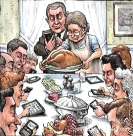0 148571 148579 148585 148589 148595 148597 148601 148607 148609 148615 148621 148625 148627 148631 148637 148639 148645 148649 148651 148655 148657 148661 148663 148665 148666 148667 148669 148670 148671 148673 148675 148679 148681 148685 148687 148691 148697 148699 148705 148709 148711 148715 148721 148727 148729 148735 148739 148741 148747 148751 148757 148765 151629

